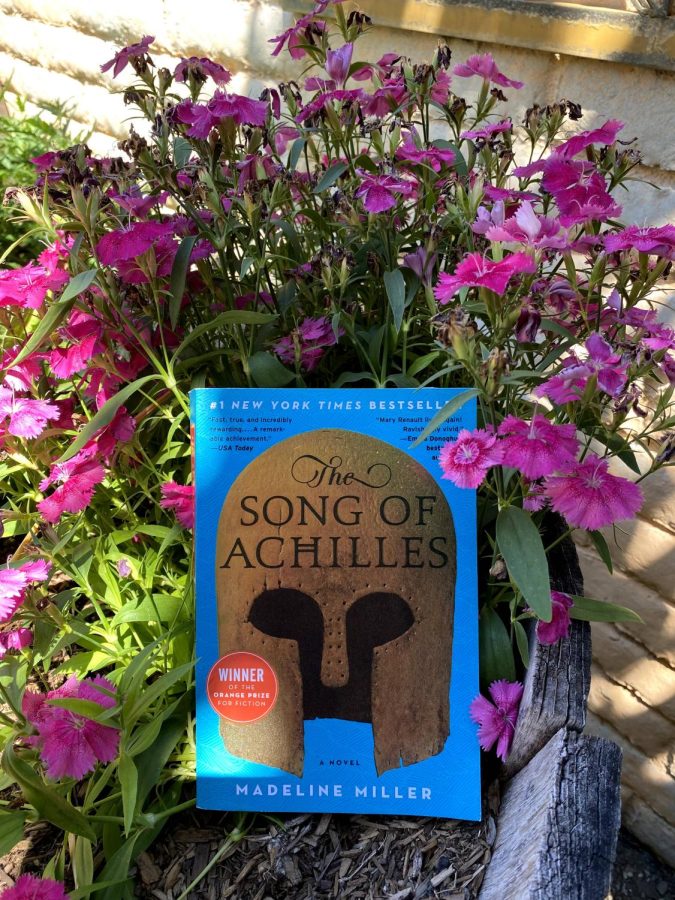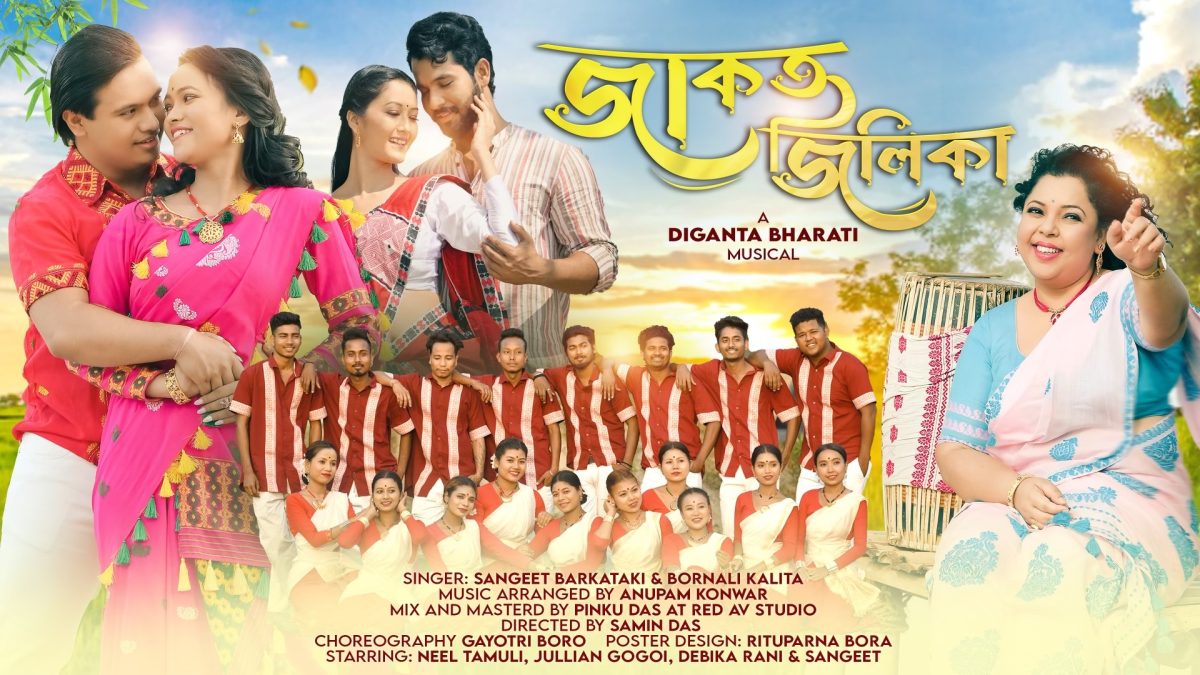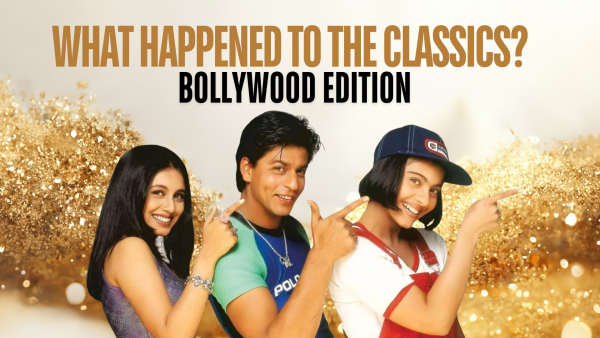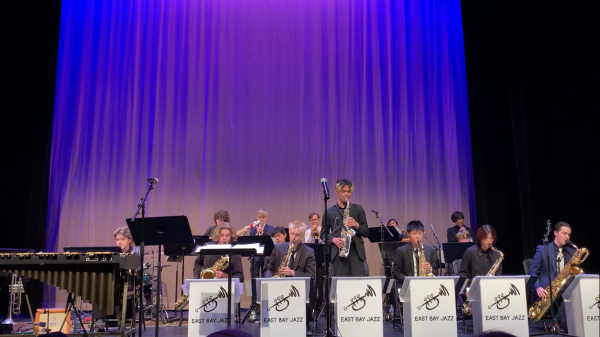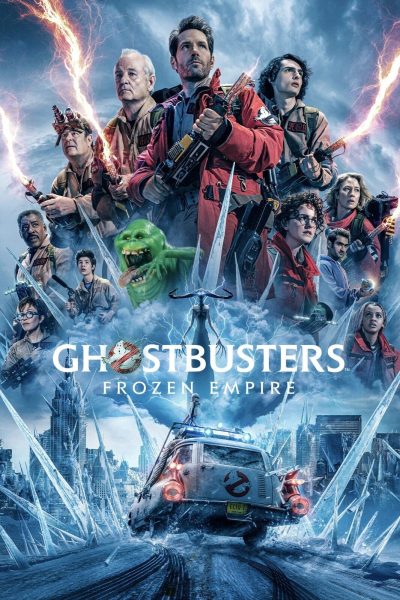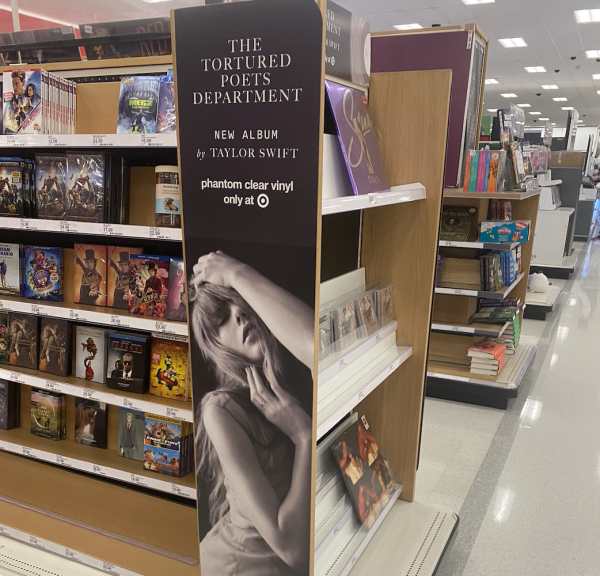“The Song of Achilles” – a modern retelling of a memorable ancient Greek tale
May 26, 2022
As I child, I remember being enraptured by Greek mythology, the fearless heroes bathed in the glory of battle, the gods watching over the world with their divine abilities. Growing up, I began to study these stories academically as well, with classic literature like the “Odyssey” and the “Iliad” in school. But although beautiful, these works simply did not appeal to me. The writing was long and complex, and above all, difficult to comprehend. That was when I picked up “The Song of Achilles” (2011) a modern adaptation of Homer’s Iliad by Madeline Miller.
This novel tells the magnificent story of Achilles, the greatest of all the Greek warriors, in the perspective of Patroclus, his best friend and lover. They first meet in Achilles’ kingdom of Phthia where Patroclus is exiled to by his father after accidentally killing a boy of noble blood. At first, they are both weary of the other. However, over the course of their time together, spent training for battle, studying medicine, and practicing craftsmanship, the two come to develop a bond.
“I enjoyed the book’s clear focus on the relationship between Patroclus and Achilles rather than the Trojan War. It was refreshing to see a focus on Patroclus and his feelings and Achilles as a deuteragonist,” said Justin Im (‘23).
Miller’s prose is especially fascinating to read because it maintains a delicate balance between poetry and coherency. She is able to convey the force of the characters’ love with vivid imagery. “In the darkness, two shadows, reaching through the hopeless, heavy dusk. Their hands meet, and light spills in a flood like a hundred golden urns pouring out of the sun.”
However, their peace does not last long, and they learn that Paris of Troy has captured the cherished lady Helen of Sparta. From Achilles’ birth, he has been prophesied to become a godlike warrior during the war, then to die immediately after Prince Hector. Most of us are familiar with this part of the story. However, what is less well-known is Patroclus’ choice to follow Achilles, driven by love and an oath his father made when he was young, and join the Greek forces led by Agamemnon.
When Agamemnon offends the gods by refusing to return a captive, they send a plague among the Greeks. However, he still does not take the blame, and even dishonors Achilles in front of the rest of his soldiers. In ancient history, a man’s pride was among the highest virtues they could protect. Consequently, Achilles makes the selfish decision to no longer fight, which ravages the Greek ranks, bringing destruction to their ships, their troops, and their land. Finally, during the climax of the novel, Patroclus is spurred to don Achilles’ armor and take his place in the war.
“The Song of Achilles” is not only a spectacularly entertaining read, but also historically accurate. Miller spent ten years researching and writing this unforgettable Greek tale in order to present Achilles as a three-dimensional character capable of battle, honor, and love in a factual manner.
A place for today’s retellings
Thus, the question arises. Should we replace the study of classic literature with more modern renditions of history?After all, they have proved to be both informative and interesting. Additionally, they are much more accessible to adolescents than the elaborate phrasing of older novels.
“I really enjoyed the book, and it would be interesting to discuss it in the classroom with other students, especially because I like Greek mythology,” said Achint Kaur (‘23).
However, others are less open to the idea because of the universal themes present in historically significant stories. These timeless messages may only be discovered through studying lasting works.
“I prefer reading modernized renditions over the classics because they are easier to understand. [However] I think the curriculum should stick to the classics. I believe the reason why a story is considered a classic is that the original must have a deeper meaning or elegance that a modernized version is unlikely to portray as clearly,” said Im.
Many English teachers, on the other hand, believe it is important to strike a balance between the two. There is value to studying both these types of stories because they offer differing perspectives on ourselves and society as a whole.
“Classical materials are considered classics due to their timelessness and exemplary craftsmanship. Modern novels, though, are still part of that ongoing conversation on the human condition and part of that literary tradition,” said English teacher John Benbenek.
Thus, maybe the question shouldn’t be as rigid as an either-or situation in which we have to give up one in place of the other. Rather, we should embrace the fact that they both serve distinctly significant purposes to progress our understanding of human nature.
“Through both ancient and modern texts, my goal is to convey how literature is the means by which we explore our minds, or more precisely, our being. If it is ultimately ourselves we are looking for in literature, then it follows that we are also ancient and modern, products of nature and culture,” said English teacher Darren Pagtakhan.
Recognizing this duality of humanity and seeing the underlying similarities between both ancient and modern texts is crucial in handling the issues of today. Through this, students can avoid past mistakes and instead invent new solutions when they become future leaders of the world.
“By denying our primitive, animalistic roots and acknowledging only the sophisticated and refined in modernity, we are in a way, denying a vital aspect of who we are, which comes with grievous consequences,” said Pagtakhan.
There is no single definition of true literature, but it seems that one thing agreed upon is that it is not strictly limited to the past.
“Literature, like all art, is an ongoing exploration of the human condition and a critique of cultural values. Having those conversations about culture in today’s world is as important as seeing it through the lense of the canonical past,” said Benbenek.

